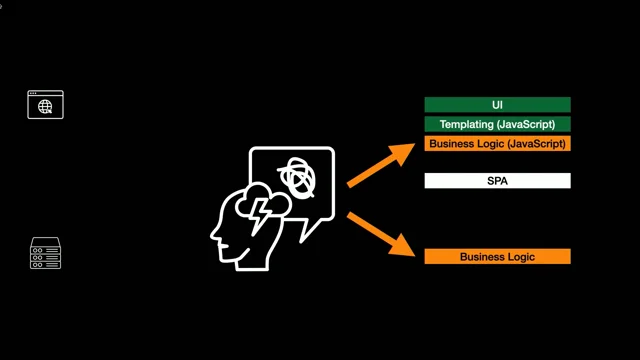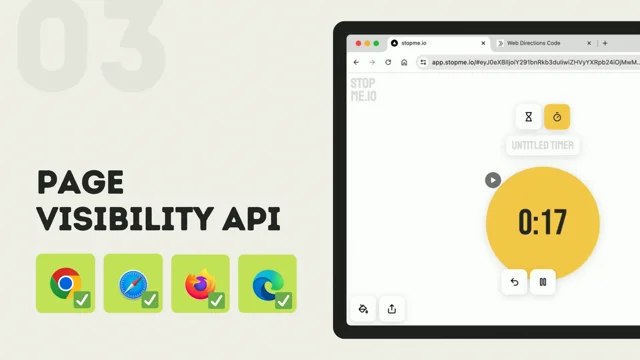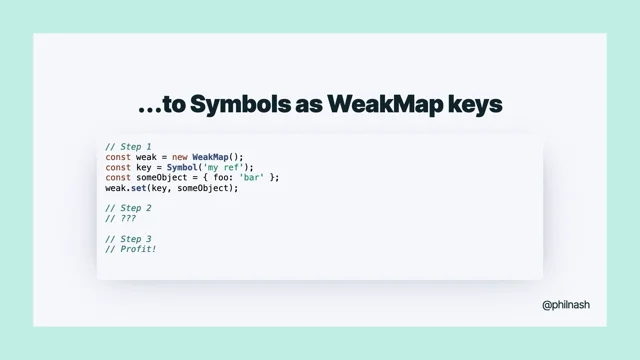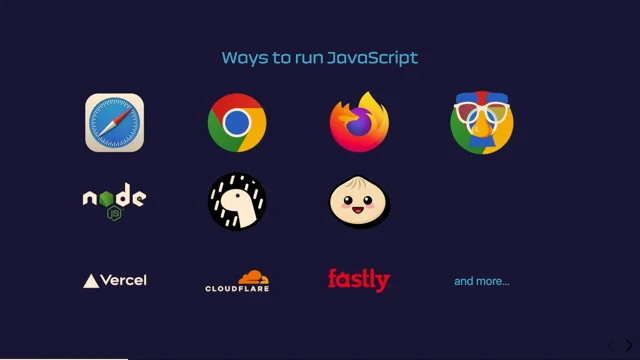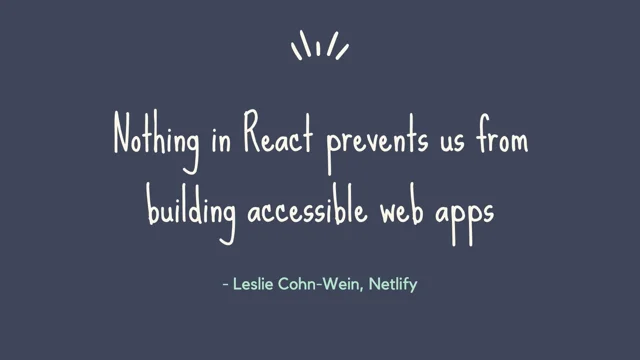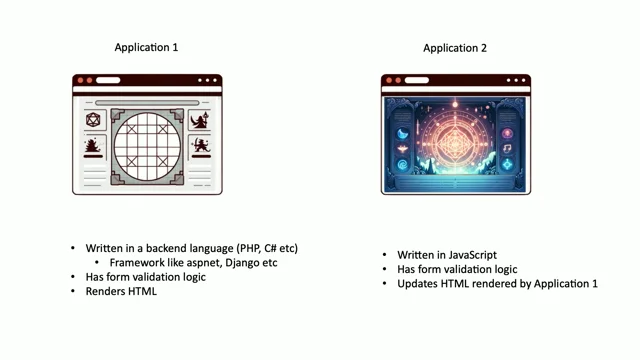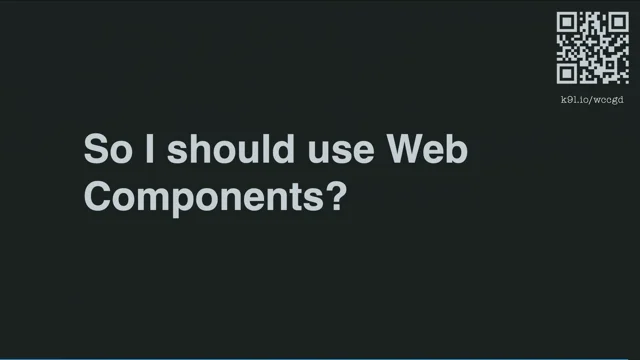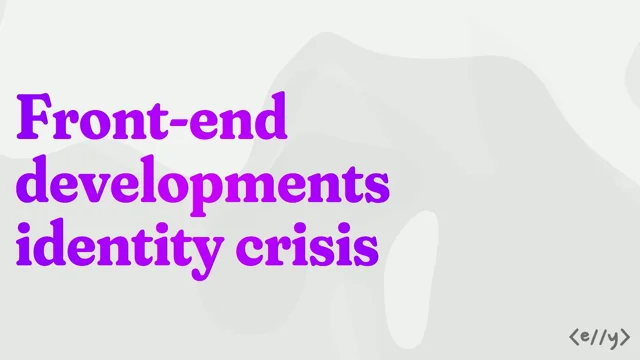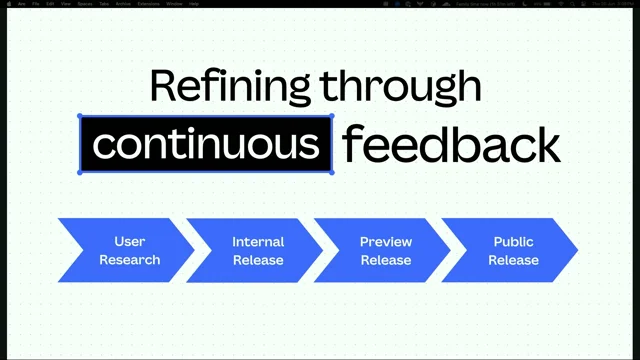The State of Web Development

The Future of Web Development
John Allsopp kicks off the panel discussion by asking what web developers should focus on next. Hui Jing Chen emphasizes the importance of participating in web standards development, highlighting the welcoming nature of organizations like W3C and TC39. She encourages developers, even those new to the field, to contribute to discussions and ask questions on platforms like GitHub.
Demystifying Web Standards
Phil Nash echoes Hui Jing's sentiment, emphasizing the value of newcomers' perspectives in challenging existing practices and asking "why" to drive improvements. He highlights the accessibility of committee notes and meeting notes from organizations like W3C, which provide valuable insights into the decision-making processes behind web standards. While these resources may appear technical, Phil encourages developers not to be intimidated, as they offer a unique window into the minds of those shaping the web.
Contributing to the Web's Evolution
John Allsopp emphasizes the web's unique collaborative nature, where advancements are not solely driven by large corporations. He encourages developers to share their knowledge and experiences through writing and engaging with the community. John highlights the impact individuals like Alex Moore have had, demonstrating that contributions from developers at all levels are valued and can lead to significant advancements in web technologies.
The Impact of Open Source
Alex Moore shares his experience contributing to web standards, highlighting the welcoming and collaborative environment he encountered. He emphasizes that contributing to web standards is not an insurmountable task and that clear communication of well-thought-out ideas is key. Phil Nash adds that organizations like TC39 provide support and guidance for developers looking to contribute, emphasizing that deep technical expertise is not a prerequisite for proposing new ideas.
The Web's Unique Collaborative Spirit
John Allsopp contrasts the web's development process with that of closed ecosystems like iOS and Windows. He describes the web as a "collective hallucination" and an "emergent phenomenon," highlighting its collaborative and open nature, where advancements are driven by a global community rather than a select few. John encourages developers to embrace and participate in this unique aspect of the web, recognizing its significance in driving innovation and shaping the future of the internet.
WebAssembly: Opportunity or Threat?
An audience member raises a question about WebAssembly and its implications for web developers. They ask whether WebAssembly-based applications, like Figma, represent a positive step forward or a potential threat to web standards. Alex Moore acknowledges the web's strengths as a document rendering platform but emphasizes the value of competition in driving innovation. He argues that WebAssembly allows for leveraging existing software and expertise, ultimately benefiting users by providing a wider range of tools and applications.
The Web as an Open Platform
John Allsopp and Phil Nash discuss the importance of the web as an open platform, where developers have the freedom to build and deploy applications without gatekeeping. They acknowledge that WebAssembly, while potentially using languages other than JavaScript, contributes to this openness by expanding the capabilities of the web platform and allowing developers to choose the best tools for the job. Ultimately, they emphasize that the web's open nature is crucial for fostering innovation and serving users effectively.
We don't have a ton of time but I like the idea at the end of two really intense days of taking a bit of a breath and looking back and thinking you know okay we've hopefully digest a lot of stuff that we've been looking at but now looking forward right so so I don't anybody remember the old West Wing, right?
Probably most people are too young for West Wing.
But there is a particular, way in which the kind of fictional president of the United States, he would say, next.
Whereas where he'd he'd be briefed by staff, and it's very early in one of the first episodes, he they'd learn that, okay, that means, okay, get it, what should we do?
And so I do, there's always been this bit of thing with in terms of web directions, we want to think partly about what comes next.
We've learned this, what do we do now?
So that's maybe what we spend a few minutes thinking about.
So I want to kick off thinking about, okay, we're here, we've got this room full of people who, this is what they do.
What should, what do you think they should be doing next?
Hui Jing?, what's something that you think people could do that maybe they're not doing and based on the surveys, that probably gives you a sense of what people are doing.
What else should we do now?
I guess this works right?
Beyonce, I guess because my, focus has always been on, the CSS aspect of web development.
One of the things that I've noticed, the people that I know who are in the W3C and the CSS working group.
Is they are striving to, to move away from the ivory tower style of web standards development.
It's just that I think it's still not widely known how the process works.
They have moved a lot, everything to, to GitHub, but then the average, like someone who's new to the industry wouldn't even consider Oh, web standards is a thing that is even I, as someone who, just learned how to code last month, can, participate in.
It's it's for experts.
I feel like there's a very valuable perspective for the people who just joined, because I think I was just having this conversation with someone.
It's we work on something for, a good ten months, and then someone just walks by behind and, Oh, you spelled that wrong.
And it's I feel like that there's a lot of value that folks who are new to the web, because it's such a welcoming place, there's a lot of valuable perspective there.
And in my, so that's my opinion, I think, it's how do we tell more people that JavaScript, so TC39's GitHub, the CSS Working Group's GitHub, you can, anyone can go and comment, you can ask questions, I think it's very impressive that, I don't know how big the team is, but It might not be tomorrow, but someone will answer the questions, or at least, oh, this is not a good question.
Semi polite reply, close.
But, someone's responding to the thing.
I find that very impressive, but, yeah.
I can't agree more that, yeah, I can't agree more that getting involved like that is great, especially for newcomers.
You say, there's so many different parts of the web that we've probably just dealt with over all this time.
I'll be honest, I'm still floating layouts.
But we need people to come in and say, why does it do that?
And really, and, but keep asking as well, because we probably all have an answer for that on the surface level.
And so asking why, and why again, like, why can't we make this better?
Because there are people working to make it better.
Yeah, and that is open, as you said, for everyone to get involved with.
You can go read those, committee notes, committee meeting notes, which, are, but at the same time, very deeply technical and intense and have a lot of questions about it, but also give you that incredible insight to what actually goes through the minds of people building these standards, building the platform on which sort of hang our careers.
And so being able to get involved with that, it shouldn't be scary.
It still feels like it sometimes, but it shouldn't be, because again, they're just people who also want to improve the web, improve JavaScript, and improve, yeah, what we're doing.
Yeah, and I think it's a point that, a lot, I know, I'm personally very fortunate to know dozens of people who are working on these work, these working groups at TC39, various working groups at W3C.
And so many have, of them, have come via being working, practicing web developers, right?
An example might be, and her name's come up before, Rachel Andrew.
So Rachel is the goddess when it comes to web layout.
There's a lot of tremendous presentations you can find, articles you can find.
She was, when I first met her in about the mid early 2000, 2006, 7, she had a little agency, she built a little CMS, and she started writing books, and there's this sort of progression that I actually think continues to be a really valid, progression, so I would try to add on to that, communicate what you learn, whether it's internally with your own organisation, like we used to have a thing called blogging, I, blogging seems to be making a bit of a comeback.
I really would recommend people write down your thoughts and share them.
I, for example, that's how I got to know Elly.
Elly had the courage to, to say, here are some things that I've experienced I think I will tell the world.
And, the likes of Alex Russell, and there are a few more influential people in the history of the web in many respects, worked on all the major browsers, developed everything from Dojo, one of the earliest web frameworks onward.
And he, I met him responding really positively to Elly's kind of piece.
People are out there.
It really is a community and it is really quite flat.
And there isn't, like I said, I really genuinely don't think there's this sort of pantheon up here and, the rest of us down there.
So I would really highly recommend, as Huijin and Phil have both said, really getting involved.
I think Alex is another great example.
You're a random web guy in Adelaide, in Wuhan, in Adelaide.
And the impact you've had and the support you've got from an astonishing array of people.
Like Chris Lilley, who is, technical director of W3 and so on.
Yeah, it's, but, one of the, one of the, I blame, Jake and Surma for some of this, because, they did a HTTP203, video podcast thing, where it's like, how you can, contribute to web standards.
And they, it's online, it's still a really good video, it's still very relevant, and I was like, oh, what?
You can submit to Web standards?
Great, there's things that I've wanted for years.
And then, literally that day, me and my brother James, we spent writing up what we wanted, which is now in CSS.
It was, What do you call media queries but for a div, CSS Containers?
Container queries.
Yeah, CSS Container queries.
Now, I don't know, there was a long list of people asking for that for 20 odd years.
Yeah, we heard that, it's yeah, everyone asks all the time and it's really difficult.
But then a comment later on was like, they can do it in JavaScript, surely we can do it in the browser.
But then that was, my first foray into actually, contributing anything back to the web.
And everyone in the world, all of these people, really friendly, really nice.
As long as you've got good ideas, You want to go in with some, you want to have thought about it pretty carefully first, but they're willing to give you their time.
Yeah, I don't exactly know how it works with the W3C, but I certainly know that TC39, when you come up with a proposal there, it's not the case that you have to now know all the technical details about how to get it all the way to implementation.
They, you have to just persuade a champion that's on the committee that's gonna, that will take that up for you, and work with you to put that proposal into a position that then can, enter, actual JavaScript land and, or enter the spec.
Yeah, this all speaks to something quite extraordinary about the web, and I alluded a bit to it yesterday.
So you have WWDC, the big Apple Developer Conference, we have Google IO, we have Microsoft Build, and they announce this amazing new feature, and APIs, and whole languages, and it seems like hole of cloth, this thing has been invented overnight, but the reality is, it's a team of people who've slaved away in, privately for many years, whereas the web doesn't work like that.
It's weird, right?
So the word weird is really interesting in Anglo Saxon origin.
It means almost otherworldly, like it's like strange and eerie, and there is a strange eeriness to the web.
It's this collective hallucination that, really, with the exception of Tim Berners Lee who came out with HTTP and HTML, but even then there were others around him who did that, but since then it's just been this shared collaborative experience.
And I really would try and encourage people to participate in that.
The web is this collective thing that we all, dare I say, weave together, from the things we build that end up in the screens of our users, all the way through, deeply into the technology.
And I'd like you to ponder that, not just now necessarily, but, it is completely unlike most things that humans have ever really done, right?
It's an emergent phenomenon in the way that iOS isn't an emergent phenomenon.
Windows is not an emergent phenomenon.
Please ponder it.
To me, it's the sort of thing that keeps me going, having been involved with the web for nearly 30 years now.
It's this sort of collaborative strangeness and richness of it.
All right, you better, you obviously said I'm gonna be delirious now.
So is there any, anyone, got any thoughts themselves?
Anyone wants to add any more suggestions?
We have some speakers, whoever today.
Please wave and then Diana will find you.
I am wondering, this is like a front end conference and there's been lots of jokes about how everybody here is a JavaScript developer.
We don't want to be, we just have to be, right?
I made fun of NodeJS when it first came out, and I was a PHP developer.
Do apps that are built in WebAssembly, like approaches being taken by Figma, do they represent, a good next step, like an exciting next step for us as application developers?
Or do they represent like a threat because they sidestep all of the web standards that we've taken so long to build in an inclusive way?
Yeah, it's, a really good question, because, the web has a lot of innate advantages, like the, you get a lot of stuff that's completely built in.
In terms of document rendering, the web is by far the best document producing platform out of anything, right?
And that's why you see native apps, whenever they need to do something really complicated, that requires a document like layout, they immediately just embed a WebView.
But that said, there's all these other, there's all these, there's all this software that already exists, that has been built up over many years, and so you think of, applications like Photoshop and their 30 year old code base, or Unity.
Or Unreal Engine 5.
Now, they're enormously complex pieces of software, very targeted.
Having those be, ported to WebAssembly, and then being able to access those applications directly via the web is enormously beneficial to customers.
And I think what the, what this all really needs to come back to is just competition.
Like, you just want whatever the best tool is to win for that particular job.
And if it is producing some, native code, which is for another system and then compiling it down to WebAssembly and using that, then great.
And if the web's the best solution, then that's also really good.
But, it's the competitive aspect of it that's really going to deliver for customers.
And businesses, and that's, and so the more stuff that's open, the more stuff that's open for competition, the better it will be just for everybody.
Yeah.
I was just ready to say, I talked to Keith Cirke last night, unfortunately Keith had a flight at 7, so he couldn't make this panel, but he yeah, he talked a bit about that, he talked about it being this pool of compute that is really, like there are lots of things we don't really want to do in JavaScript, for all kinds of reasons, right?
Performance, whatever, and it allows us to push that off into this deep pool of compute that we can do really interesting things with.
I think there's a whole, really rich, complex conversation about what you just raised, Phil.
Yeah, and the web is a platform.
HTML are incidentally part of it and have been a, a good basis for all of that.
But the fact, the important thing for it, and this goes to your sort of fight for web apps, is that it is this open, it's the biggest open platform for software in the world.
It actually doesn't matter what we write it in, as long as the platform is not gate keeped by, gate kept?
By, by any, by You went to Oxford, you should know!
I didn't do an English degree.
Yeah, there's nobody gatekeeping that platform for us.
It's that ability to deploy something without anybody else, being in charge of that.
And if we, yeah, if we can bring those old pieces of software, if we can make incredible new pieces of software, even the ability to run AI models within WebAssembly, or WebNN, or, whatever we're getting with that.
And so WebGPU, similarly, again, we're not, we're throwing off to shaders and such like that.
It doesn't matter, it's the matter, the actual important part of all of this is that we have an open platform on which we can serve users and make their lives better.
I, I'm gonna wrap there partly 'cause I promised the ACMI folks would be out at five , but I was, I actually think it's a marvelous place.
Have you got any, did you want to add at all to that Hui Jing before?
Any last thoughts before we go?
Whatever I said would've just echoed right?
Depends, I think it's right tool for the right job.
I think that's the thing that resonated because we are stunningly bad.
We are so good at shoehorning things into like this tool.
We, I only want one hammer, is what, and I'm like, have you heard of a screwdriver?
It works really well, yeah.
That's right, I actually wrote an essay about Maslov of the pyramid, that, it's called Maslov's Hammer.
So a man with a hammer, everything is a nail.
But so hopefully we have this rich toolbox that includes Canvas and Web Workers and, WebGPU and all of this.
And that's the challenge to you, right?
Thank you all.
See you again soon.
